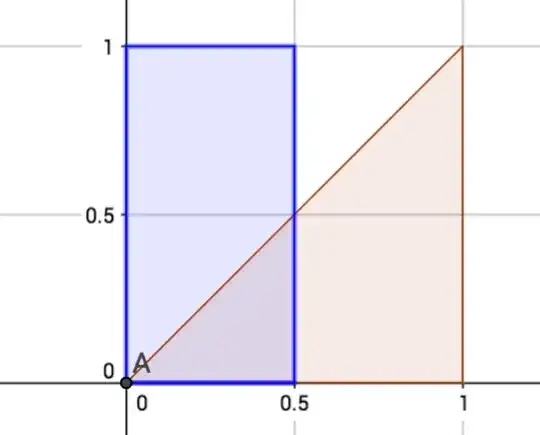I've come across the statement which says that if two events $A$ and $B$ are disjoint, then they are dependent because if, for example, $A$ occurs, it gives us the information that $B$ didn't occur. So far so good.
Hence I draw the conclusion (possibly erroneously) that if two events are not disjoint, they are independent.
I'm trying to test it with the artificial example a friend of mine came up:

Consider the sample space in the picture which is the unit square.
Event $A$ - the blue rectangle
Event $B$ - the brown triangle
$P(A)=0.5$
$P(B)=0.5$
$P(A\cap B)=0.125$
Obviously, $P(A)*P(B)\neq P(A\cap B)$ and I conclude that $A$ and $B$ are also dependent.
So, I am wrong saying that if $A$ and $B$ are not disjoint, they are always independent?
I know that my example does contradict that, but does it exhaust all the possible cases?
– alekscooper May 02 '17 at 08:11